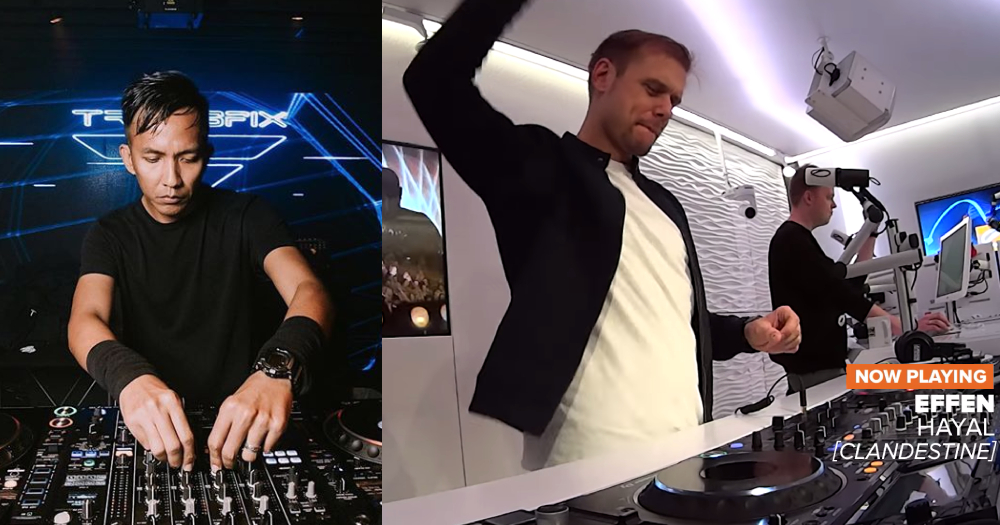January 10, 2019.
Effendi Yacob still has a crystal clear recollection of the date.
The 38-year-old was off to bed early; he was scheduled to conduct DJ lessons at a secondary school in Jurong the next morning.
It wasn't long, however, before Effendi was woken up by the buzzing of his phone. At first, he ignored the notification, but then his phone lit up and buzzed again. And again. And again.
“I was getting a bit annoyed,” he told me.
“Because who is sending me, you know, messages or anything. What was going on with my phone? So I looked.”
What that DJ and electronic music producer saw were tweets on a thread started by A State of Trance — a weekly radio show hosted by electronic music megastar Armin Van Buuren.
The Dutch DJ had just played Effendi’s latest track “Hayal” on his show, beaming the tune to hundreds of thousands of listeners all over the world.
&feature=youtu.be&t=5535
Featuring a soft piano introduction that slowly rolls back to reveal a high-energy, pulsating electronic dance-floor earworm, the song was an instant hit with listeners, whose appreciative comments had triggered the multiple notifications on Effendi's phone.
“My favourite tune this week,” wrote a commenter.
“Absolutely massive tune!” replied another.
One user on Twitter retweeted the State of Trance post with a succinct refection of her feelings — a single flame emoji.
And there was Van Buuren himself, of course — one of the biggest names in electronic music — livestreaming inside a Dutch studio on his YouTube channel, pumping his fists and jiving back and forth to Effendi’s song, written and produced here in Singapore.
For the man known to most by his performing moniker of Effen, that day, Jan. 10, 2019, was the highlight of his career — maybe his life — so far.
Connecting with "computer music"
It’s a career that Effen almost fell into; it started with a longstanding passion for music that turned into a means of income.
While he never received any formal training or lessons, Effen had been involved in bands and performance from a young age, practising with his school’s brass band — where he played the Euphonium — and later jamming on various instruments to heavy metal tunes with his friends.
Soon, his musical preferences would expand to include the electronic music genre called "progressive house".
It started with a visit to Zouk, recalled Effen, a regular haunt for him and his friends during their national service days in 2003.
“It was this particular night, that me and my friends went, the DJ was playing some stuff that I really could relate to from a musical standpoint,” he said.
Progressive house music is “very dark, very melodic”, explained Effen, and has much in common with the heavy metal music that he was into at the time.
“So that sparked my interest to explore (electronic) music.”
However, as Effen tells it, “computer music” wasn’t an easy thing to get one’s hands on in the early 2000s.
“Back then, the only way to get access to this music was by buying vinyls,” said Effen. “And buying vinyl meant that you had to buy turntables.”
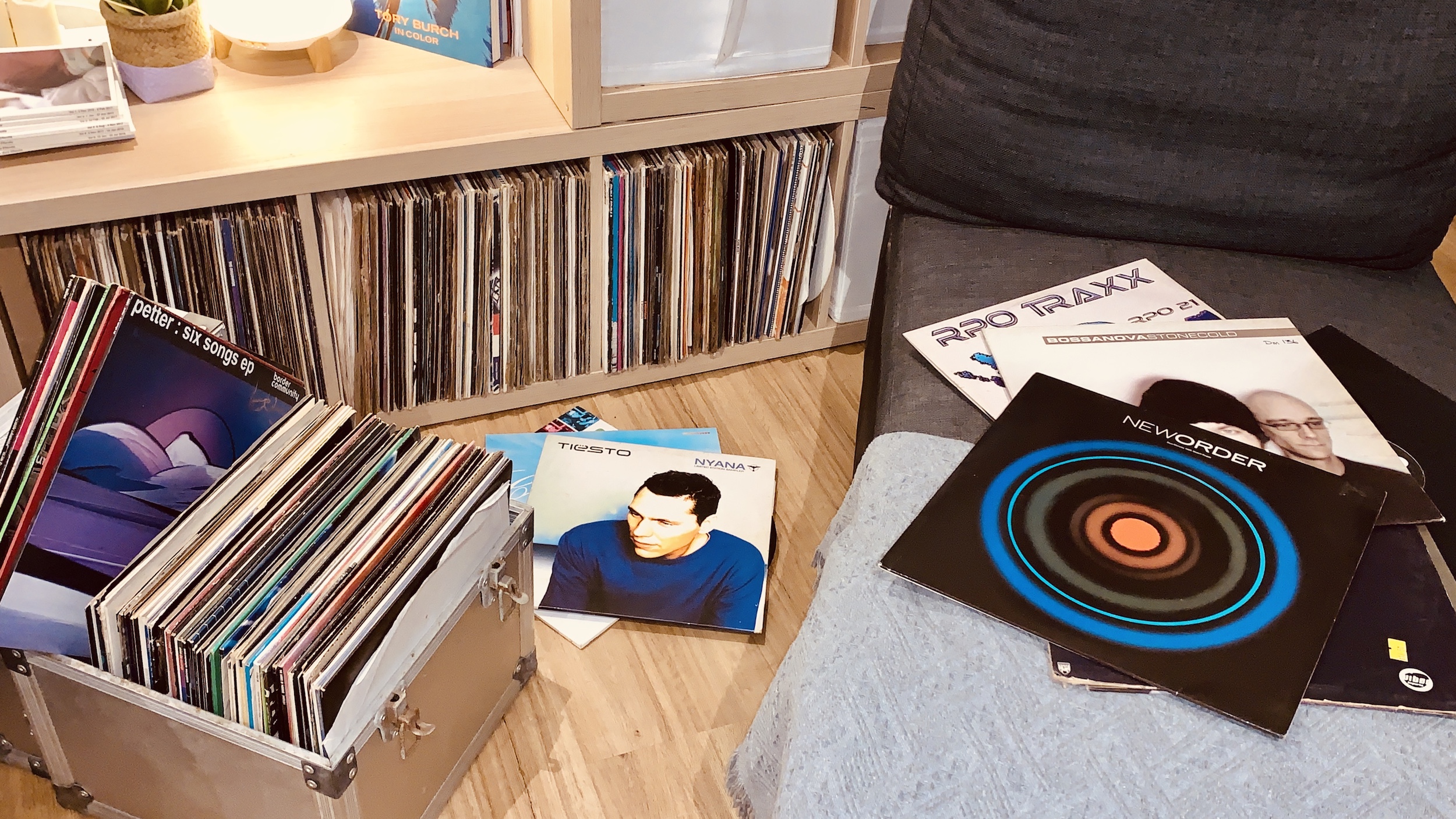 Image courtesy of Effen
Image courtesy of Effen
Bedroom mixes
Effen's return from a trip to London which included a vinyl record shopping spree coincided with someone in Singapore putting up their DJ equipment for sale on the cheap; “So that’s how I literally just started DJ-ing I suppose”.
Soon, Effen began producing his own music, mixing the tracks on his modest, second-hand DJ set-up at home and recording hour-long demos burnt onto CDs.
One of these CDs was submitted to local radio station 91.3FM — which was marketed at the time as the station of choice for dance music fans.
The station must have liked what they heard, because Effen’s demo was played on 91.3’s regular Friday slot where music by local DJs would be featured.
One month later, Zouk got in touch with the fresh-faced producer and offered him his very first gig, a one-hour slot in the club’s main room in January 2005.
In the space of two years, Effen had gone from listening and mixing music in his bedroom to playing at Singapore’s biggest club.
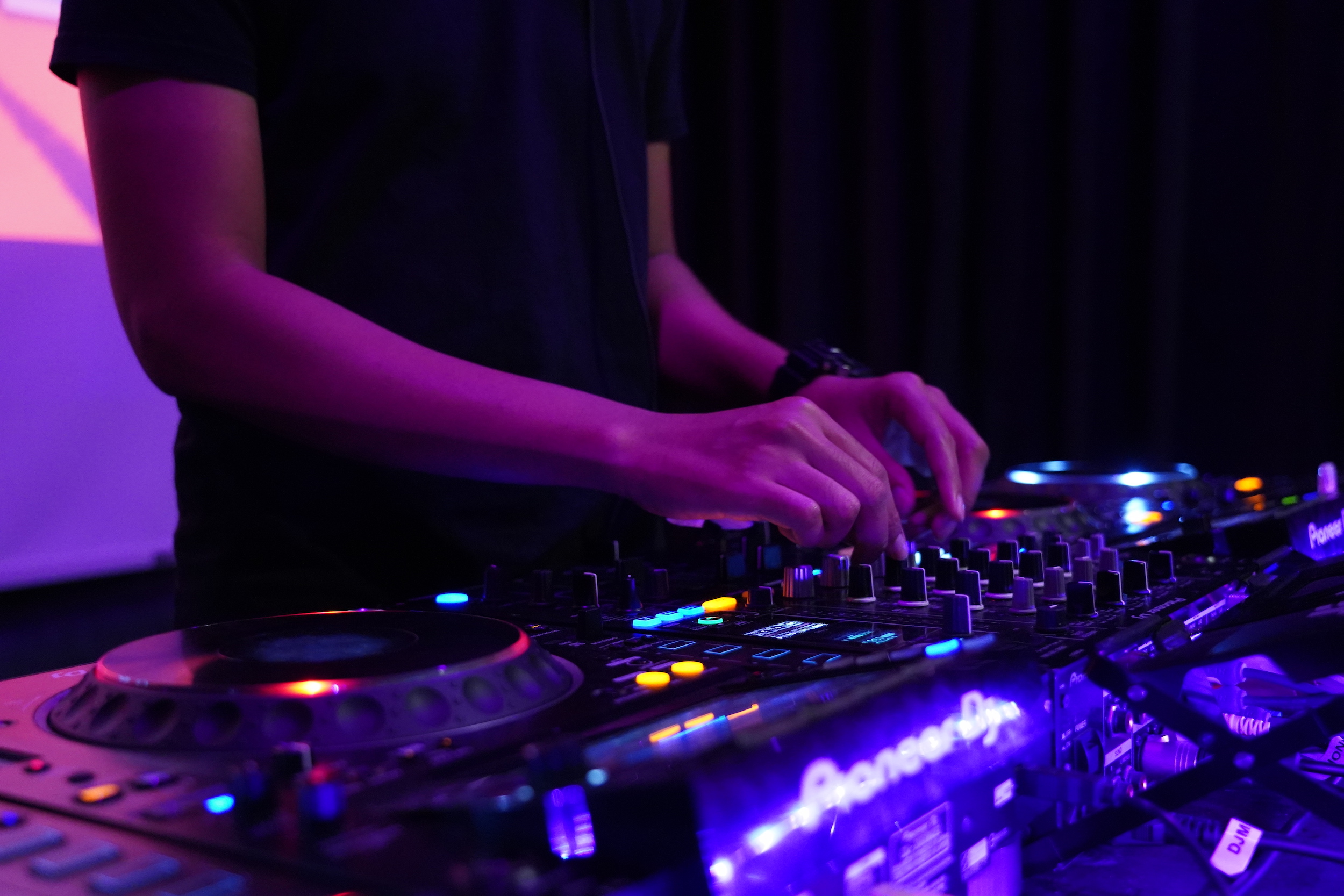 Image by Zenn Tan
Image by Zenn Tan
The first gig at Zouk
That first gig is also etched permanently into Effen’s memory, though not exactly for the most positive of reasons.
It was the eve of Chinese New Year, and Zouk was featuring an all-local line-up. Effen had the honour of playing, in the club’s main — and biggest — room, at the peak hour slot of 2 to 3am.
“I screwed it up. I totally screwed up,” he told me.
Most people don’t go from their bedroom to Zouk in one step, Effen explained. DJs in Singapore tend to work their way up; maybe playing a few sets at quiet bars or pubs, then getting residency at a smaller club, before ultimately making it to the big leagues.
For good reason too.
“The stuff that I use at home is cheap DJ equipment, so I’m used to that,” he said.
Zouk, on the other hand, utilised professional industry-standard equipment, good enough to be used by the host of international DJs that played at the club week in, week out.
“I had a soundcheck at 9pm — before the club opened they let me in for 15 minutes — and I knew that shit, I’m in trouble because I don’t know how to use this mixer. The turntable is, you know, my dream setup, but I don’t know how to handle it.”
The other thing that caught Effen totally off-guard — and this may sound ironic — was just how loud the music was.
“It was something that I’m not used to at all,” he said.
“Being in the DJ booth and everything, there are lots of things going on. There are tons of people… I screwed up royally.
Literally every single song was a train wreck.”
Getting traction
Despite the less-than-stellar performance, Effen says that at least one positive emerged from the night.
Inspired by the realisation that he had nothing to lose considering how bad the night was going for him, the novice DJ decided to have a bit of fun and threw in a remixed version of a popular Malay song.
“I guess I’m the first one to play a Malay song in Zouk?” he said laughing.
More than 15 years removed from that night, Effen was still unwilling to tell me what song it was that he had remixed and played.
“I don’t know if I want to say because it’s really embarrassing,” he told me.
“It was just something that I did for fun, but it kinda took off… it got a bit of traction.”
Now people were recognising Effen — “Hey, you’re that dude that played the Malay song right?” — and it wasn’t too long before he managed to make DJ-ing a full-time job, earning residencies at various clubs in Singapore.
Missing out on the gig of a lifetime
International tours and festivals followed, and in 2009, he scored a gig at Freedom Festival Malacca opening for electronic music heavyweights such as Above & Beyond, Ferry Corsten, and Markus Schulz.
Effen admitted that a large part of his set was played to an empty field, as the organisers had banned the sale of alcohol within the venue itself and festival-goers were mostly outside drinking.
But, he did catch the attention of some members of Dutch DJ Tiësto’s crew backstage.
One of them approached Effen with an offer: Tiësto was looking for a DJ to open for him throughout his summer residency at a club in Ibiza and the Singaporean DJ and producer seemed like a good fit.
For many DJ’s this would have been a dream come true; a regular Monday night gig in the party capital of the world, warming up the crowd before the man who was deemed “the greatest DJ of all time” came on stage.
The only problem? The gig was scheduled for the following week.
“I didn’t have the time to process,” said Effen, reflecting on what might have been.
He had a full-time job here in Singapore he would have to leave and there was lots to consider, the financial viability of opportunity among them — the Tiësto gig would last three months over the Ibizan summer, and then what?
“I couldn’t think straight,” he said, chuckling nervously.
“I told the guy: ‘Yeah, I’ll get back to you’”
By the time Effen managed to get back in contact with the crew member to take up the offer, they were already in Ibiza and had secured another DJ as the opening act for Tiësto.
It’s easy to look back at that moment and point to it as the one major misstep in a burgeoning career, but judging from the DJ’s demeanour, he’s found peace with his decision.
“Looking back, right, how my career turned out both in DJ-ing and production, there’s no regret really.”
Ultimately, Effen said that his decision was one based on longevity and stability — something he said Singaporeans are “conditioned to think about”.
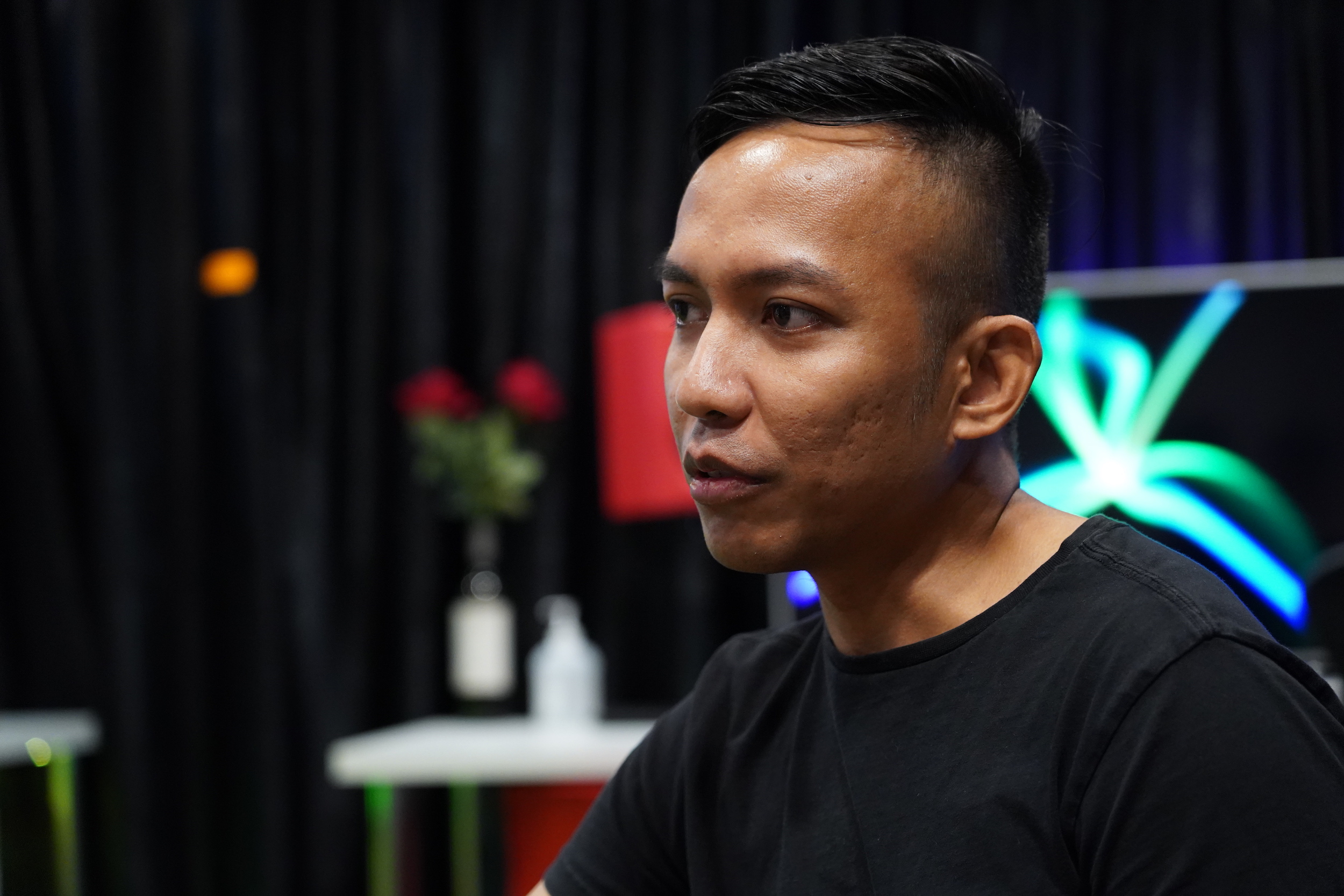 Image by Zenn Tan
Image by Zenn Tan
A volatile industry
Those values eventually saw Effen leave the nightclub industry in 2014, the same year he got married.
“To be honest, the industry is very volatile,” he said.
“I could kind of see where things were going for the industry back then, not in this Covid-19 sense, but in the sense that it was going to be hard to sustain.”
Intensifying competition to get crowds into the clubs saw the increased proliferation of guest lists and free entries.
These were undoubtedly eating into the revenue of nightclubs, along with the fact that, once inside, partygoers didn’t seem to pay attention to the bar as they would have already had their fill of drinks from the nearby 7-Eleven.
And then, of course, there’s the struggle — in the Covid-19 sense — Singapore’s nightclubs find themselves mired in, given today’s circumstances.
Safe distancing measures brought on by the pandemic have seen clubs in Singapore shut down since March, without so much as a hope of reopening until a vaccine is readily available.
This has left many who depend on nightlife for their livelihoods in the lurch, scrounging around for jobs in an economic downturn.
Yet, according to Effen, the Covid-19 pandemic has only laid bare the aforementioned realities of working in a mercurial industry.
Many DJs, some who may even have clinched full-time residencies in clubs, had already turned to cultivating alternate sources of income as a means of finding some semblance of stability, he said.
For Effen, who “already had a good run, you know, about ten years,” this meant leaving full-time DJ-ing behind.
Ministry of DJs
So he turned to teaching, joining the electronic music school Ministry of DJs, where he still works today.
The school offers students a chance to pick up DJ-ing, music production, and turntable skills through a variety of courses aimed at giving young individuals the “necessary skills to explore and unleash their true musical creativity”, according to their website.
It’s a vision that Effen identifies with and finds satisfaction in working towards.
https://www.instagram.com/p/BjEux-Vlc2M/
These days, the school has expanded its programmes and classes to schools, as well as girls' and boys' homes.
The latter, Effen said, was his “greatest teaching experience”.
“Obviously coming into the home — both girls' home and Singapore Boys' Home — I was very, very nervous. But through music, I think there’s a common interest.
So even though you get students who may decide not to cooperate in the day, once they come into the room and they see me and the DJ console and music, they know it’s time to ease up a bit, it's time to share.”
Just getting to know the students and listening to their stories has been something Effen has unexpectedly enjoyed, though there are times that it can be “very heartbreaking”.
“Some of them really didn't have a chance in life, you know?” he said. “So that is an eye-opener. And that is where teaching for me is like, ‘Whoa’, you know, I never thought that it could be that deep.”
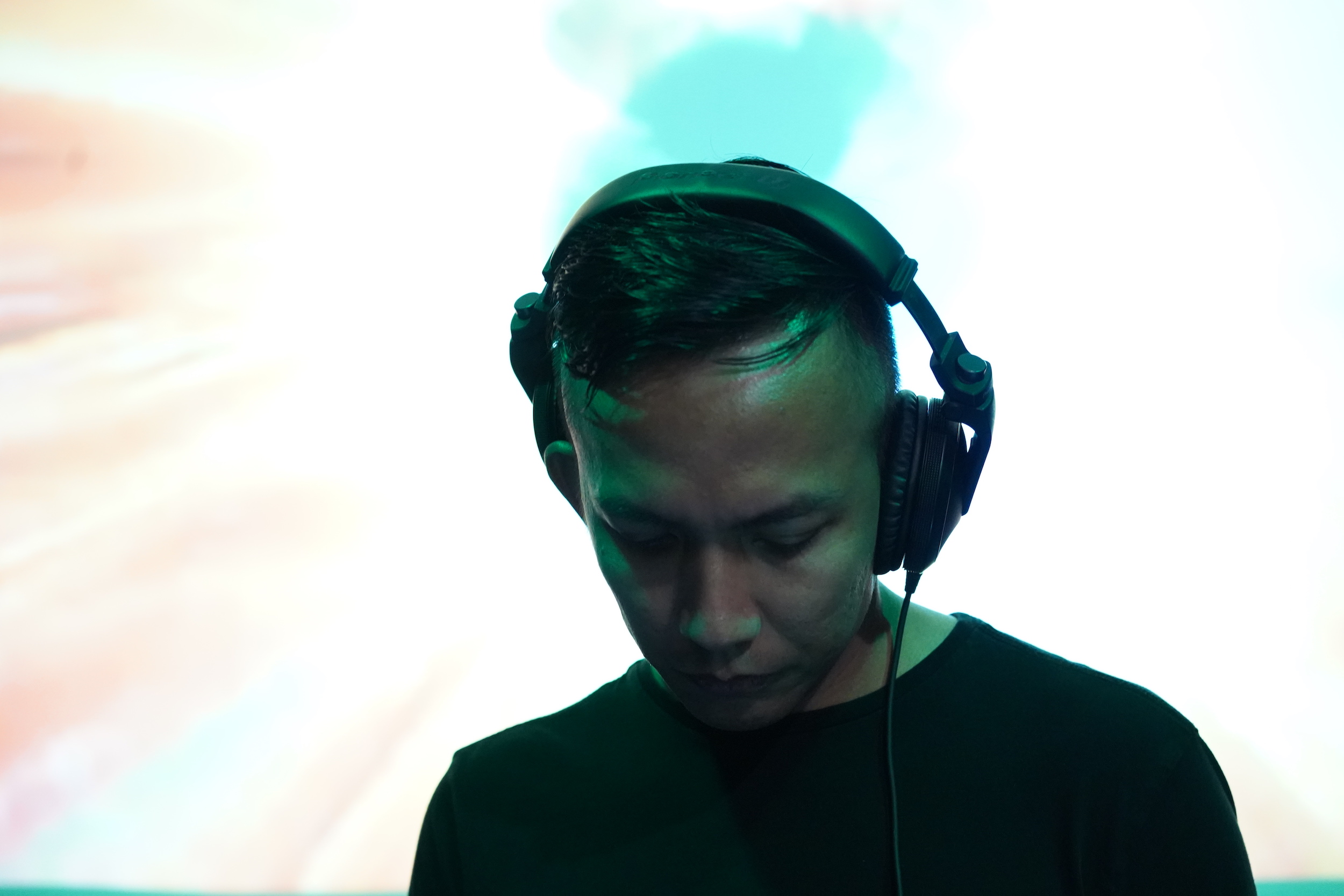 Image by Zenn Tan
Image by Zenn Tan
Building momentum
As alluded to earlier, Effen’s move from full-time DJ-ing to teaching has also helped to insulate him from the struggles that the nightlife industry faces today.
He counts himself fortunate; leaving well before the global pandemic started gave him the time to establish a reputation as a proven educator.
The job also allows him to keep his skills sharp; Effen performs regularly on Ministry of DJ's livestreams — which you can catch every weekend on the school’s Facebook page.
These livestreams, he said, are crucial for DJs to remain relevant and visible.
Most importantly, stability has given Effen the peace of mind to continue focusing on his true love: producing original music.
2019’s success with “Hayal” spawned further success, and another of Effen’s songs — “Sinners (Aren’t We All?)” — was featured on Van Buuren’s A State of Trance.
“I did get some inquiries from overseas before the whole Covid-19 thing,” he said, when asked if his international recognition had led to offers of tours or gigs.
“But then again I’m more concerned now on building momentum in my production as a producing artist.”
If and when travel and nightlife returns, Effen believes that having a solid catalogue of original music will put him in good stead to make an international impact.
His ambition is to ultimately be able to book shows on the strength of his own songs, rather than his ability to mix the songs of others.
When that happens, Effen, who was once given the nickname “Singapore’s best kept secret”, might have to find a new calling card.
Stories of Us is a series about ordinary people in Singapore and the unique ways they’re living their lives. Be it breaking away from conventions, pursuing an atypical passion, or the struggles they are facing, these stories remind us both of our individual uniqueness and our collective humanity.
Top image from Effen's Instagram account and Armin Van Buuren's Youtube Channel
Totally unrelated but follow and listen to our podcast here
If you like what you read, follow us on Facebook, Instagram, Twitter and Telegram to get the latest updates.
